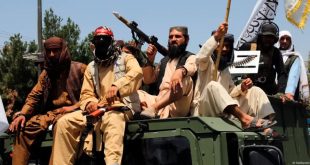Prime Minister David Cameron is known for his politically astute and vigilant speaking, especially on matters pertaining to war against terrorism. He overstretched his political brief awfully in claiming that British combat troops arrived home from Afghanistan with their mission accomplished. His military point man Brigadier Rob Thomson, the senior most British officer in Helmand was however, pragmatic, in his response, when asked if UK had won or lost the war, after the conclusion of the UK’s military mission “Operation Herrick” in Afghanistan. He said that in today’s wars there is not a simple ‘defeat’ or ‘victory’ like there was with the Second World War. Deep inside, he knew that British war on terror in Afghanistan was nothing more than an academic closure, and doesn’t resonates around the claim made by his popular PM.
British forces hailed as one of the best in the world had suffered “heavy and tragic” losses in one of the longest military campaigns, in the history of human race. There are serious questions lying around the design and outcome of one of the most expensive and bloodiest war in UK’s military history fought in the hostile and unfriendly locales of Taleban infested Southern Afghanistan. The British military kept on extending the scope of their military mission from dismantling al-Qaida and killing Laden to irreversibly degrading the striking capability of Taliban and further eliminate their leaders. The scope of the military mission was soon enlarged to eradicate poppy, espousing democracy and women rights, along with good governance. The latest was training their Afghan counterpart for raising their striking capability along with advocating political engagement with Taleban, under the fold of peace process in Afghanistan. Such was the change in the mood that all the ex and current Foreign Secretaries, openly advocated the prospect of parleying with the Taliban in chorus, the very people the military went to war to remove. As apparent, the goal of the UK military mission was constantly moving and so was it development mission in Afghanistan.
Taleban is not only resurgent but has wormed their way to the relatively stable northern region and attacking Kabul at their free will. There is an alarming spurt in terror attacks and the threat of Taleban taking over Kabul, appears more real than ever. Afghan opium production has witnessed a triple fold increase after the fall of Taleban as per the latest UN data. Less than one third of the country is now “safe for reconstruction”, compared with 68% in 2009. The development process in Hilmand, the base of UK military over the last decade, has come to a grinding halt. Afghanistan stands as the second most corrupt country in the latest transparency international ranking.
With the Taleban significantly threatening the rookie Afghan army, the training and military preparedness under NATO is also up for critical examination. Barring the exception of the assassination of Bin Laden – carried out 10 years later in another country sans any UK role– none of the goals has been achieved after funding one of the most lethal, and expensive war, draining the UK state exchequer by £40bn and still counting. The UK’s military role in Afghanistan since 2001 has brought with it a heavy human toll, with 456 British soldiers killed and thousands lying injured.
The war confused the ordinary citizen as well as the military personnel to the extent that they started questioning the presence of UK in Afghanistan. A highly decorated British military officer was fired when he stoke such cynicism in his private exchange of mails. The premise behind sending the troops to Afghanistan was to counter the terrorist at source in order to keep the streets of Britain and its global interest safe. It is for anyone’s guess to determine if the threat perception has been eliminated even by an iota. On the contrary the threat itself has moved to the safe terrorist sanctuaries and further multiplied in Waziristan region of Pakistan, where the neither the NATO, nor the British military forces, enjoy any access. The departure of British troop from Afghanistan, in line with NATO’s declaration provided the perfect face-saver to evade a haggard military campaign countered with numerous flaws in its strategic design and purpose. The question is not about sending the troops into Afghanistan, but about the strategy and ever-elusive goals it chased in Afghanistan.
As the combatant role of UK military forces has ended in Afghanistan, the Defense Secretary Michael Fallon seriously needs to introspect if the war against terror has served any purpose other than the political imperative of retaining the closest possible links with their all weather ally US. Was there any real cause for pride?
When UK committed for a military surge in Hilmand, the then southern commander of Taleban, Mullah Daudullah boldly announced to the media that they would make most of these soldiers sleep in the British cemetery in Kabul. This cemetery was built as the final resting place of the British soldiers, who died in the Second Anglo–Afghan War in 1878. Perhaps it needs to be mentioned here that the Afghan fighters defeated the British soldiers in both the First and Second Anglo–Afghan Wars fought in 1839 and 1878 respectively. Both the wars witnessed large-scale deaths of British troops. Hilmand was one of the locales of the said war. The Taleban commander had snidely added that they would inflict a cost on UK for sending their military to Afghanistan. It is difficult to assess the fate of the war on terror in Afghanistan? It is further difficult to assess who has achieved their goal—the British or the Taleban?
By any objective reckoning, failures on such a scale should be at the heart of political debate. But instead the political class is gearing up for military surge in Syria, after a failed cause in Iraq and Afghanistan. The military show must “GO ON”.
Sujeet Sarkar works as an international advisor on governance and writes columns for international dailies. He has authored an acclaimed book titled In Search of a New Afghanistan.
 Afghanistan Times Latest News and Analysis from Afghanistan and the Region
Afghanistan Times Latest News and Analysis from Afghanistan and the Region




